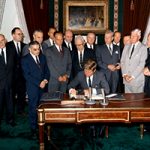The United States and United Kingdom completed the largest removal of HEU to the US in National Nuclear Security Administration history — nearly 700-kilogram of HEU were removed. Under Secretary for Nuclear Security and NNSA Administrator Lisa Gordon-Hagerty commended effort: “This joint effort highlights our strong cooperation and mutual nonproliferation goals.”
Fact Sheet: Chemical Weapons
Updated November 2024 A chemical weapon (CW) is a device designed to release a chemical agent(s) to cause physical harm and potentially death. These chemicals can be divided into categories such as choking, blister, blood, nerve, and riot control agents. CWs can be dispersed using various delivery systems, including grenades, landmines, artillery rounds, rockets, missiles, […]
Greenpeace stunt highlights gaps in French nuclear safety
Senior Policy Analyst Dr. Sara Z. Kutchesfahani spoke to Talk Media News about nuclear security concerns addressed by activist groups in France.
Fact Sheet: The Limited Test Ban Treaty (LTBT)
The Limited Test Ban Treaty (LTBT) (also known as the Partial Test Ban Treaty) is a multilateral treaty banning explosive nuclear testing or “other nuclear explosions” in the atmosphere, outer space, and underwater. The treaty only permits underground nuclear testing if the test does not cause radioactive debris to be present outside the jurisdiction of […]
Nuclear Governance in a New Era: Responsibilities and Challenges
The Global Nexus Initiative (GNI) is a unique project that combines experts from the nuclear industry and leading energy, climate change and nuclear security advocacy organizations. The nuclear governance system is facing an unprecedented challenge as traditional nuclear suppliers that have built the backbone of the safety, security, and nonproliferation regime face new competition to […]

